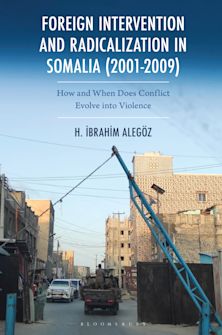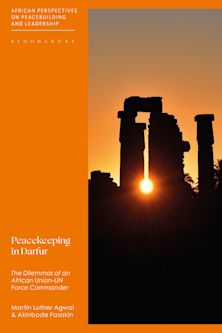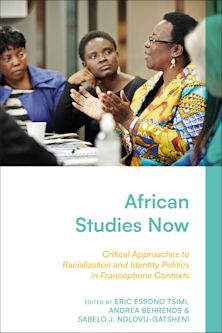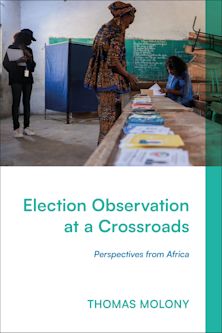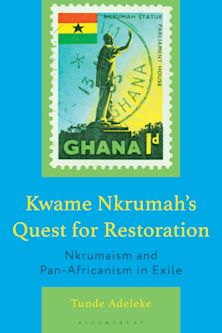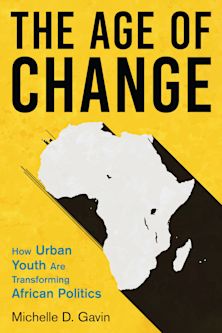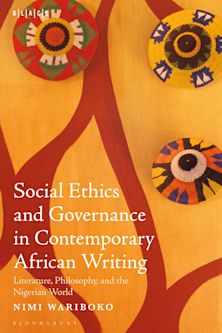- Home
- ACADEMIC
- Politics & International Relations
- African Politics
- Securing Peace in Angola and Mozambique
Securing Peace in Angola and Mozambique
The Importance of Specificity in Peace Treaties
Securing Peace in Angola and Mozambique
The Importance of Specificity in Peace Treaties
You must sign in to add this item to your wishlist. Please sign in or create an account
Description
This book helps explain how and why there are such diverging outcomes of UN peace negotiations and treaties through a detailed examination of peace processes in the Angolan and Mozambican civil wars. Does it really matter what's written on page 36, protocol V, section III, point 5 of a UN-endorsed peace treaty? Dr. Miranda Ruwart Melcher shows that seemingly small details - such as who wears suits, who has toothbrushes, and how specific words are translated between French and English - can and have delayed peace or contributed to restarting wars.
Dr. Melcher uses unique primary source data, including interviews with key actors who have participated in peace treaty negotiations, as well as thousands of previously newly opened UN documents. She argues that treaty specificity is an undervalued - but important - factor in researching the success or failure of peace processes. The book offers new insights and policy recommendations for key details whose presence or absence can have a significant impact on how peace processes unfold.
Table of Contents
Chapter 1: Introduction, Methodology, and Literature Review
Chapter 2: The Angolan and Mozambican Civil Wars
Chapter 3: Towards Peace: The Angolan Bicesse Accords and the Mozambican Rome Agreement
Chapter 4: Diverging Paths: Failed Peace in Angola & Progress in Mozambique
Chapter 5: Peace at last: Ending Angola's War and Reconstructing Mozambique
Chapter 6: Treaty Writing and Implementation of Post-Conflict Military Integration: Discussion & Conclusions
Bibliography
Index
Product details

| Published | 21 Mar 2024 |
|---|---|
| Format | Ebook (Epub & Mobi) |
| Edition | 1st |
| Extent | 272 |
| ISBN | 9781350407947 |
| Imprint | Bloomsbury Academic |
| Publisher | Bloomsbury Publishing |
About the contributors
Reviews
-
This book focuses on the fundamental questions of how to make peace and make sure that it holds. Miranda Ruwart Melcher patiently dissects two peace processes to glean important lessons on the need for specificity in peace process provisions rather than deferring difficult decisions to a later stage. This book represents a great addition to the Peace and Conflict Studies literature. It is highly recommended.
Roger Mac Ginty, Durham University, UK
-
A solid study that offers new insights into the peace processes in Angola and Mozambique and thought-provoking suggestions regarding the importance of military reintegration provisions in peace agreements.
Philipp Kastner, University of Western Australia, AUS
-
Securing Peace in Angola and Mozambique draws our attention to security sector reform as a crucial part of the peace process. The book systematically examines the behind-the-scenes dynamics of how peace treaties come into being, arguing for contextual sensitivity and specificity in treaty negotiations, terms, and implementation. This analysis contributes to the processual turn in the study of civil war and has important implications for our understanding of war-to-peace transitions in general and military integration in particular.
Anastasia Shesterinina, The University of York, author of Mobilizing in Uncertainty (2021)
-
This decade has seen new civil wars in Africa. Securing Peace in Angola and Mozambique is timely – re-examining two nasty conflicts that ended some 20 and 30 years ago. Miranda Melcher's well written book focuses on the importance of negotiation and peace treaties and assesses why some treaties stick, and others fail. An important resource for practitioners and scholars, examining the stumbling blocks in negotiating peace treaties and why some civil wars last longer than others.
Dr Alex Vines OBE, Research Director, Regions and Risk, Chatham House
-
The [narrative] that Melcher tells will be interesting to scholars, activists and students with wide-ranging interests such as peace processes, peace agreements, mediation, security sector reform, UN peacekeeping, Southern African history, to name a few … This book tells a compelling and convincing story about how peace processes happen, how they progress, and how any resultant agreements stick.
International Peacekeeping
-
The book provides a far-reaching analysis and excellent overview of the Angolan and Mozambican peace processes and their challenges.
International Affairs

ONLINE RESOURCES
Bloomsbury Collections
This book is available on Bloomsbury Collections where your library has access.












